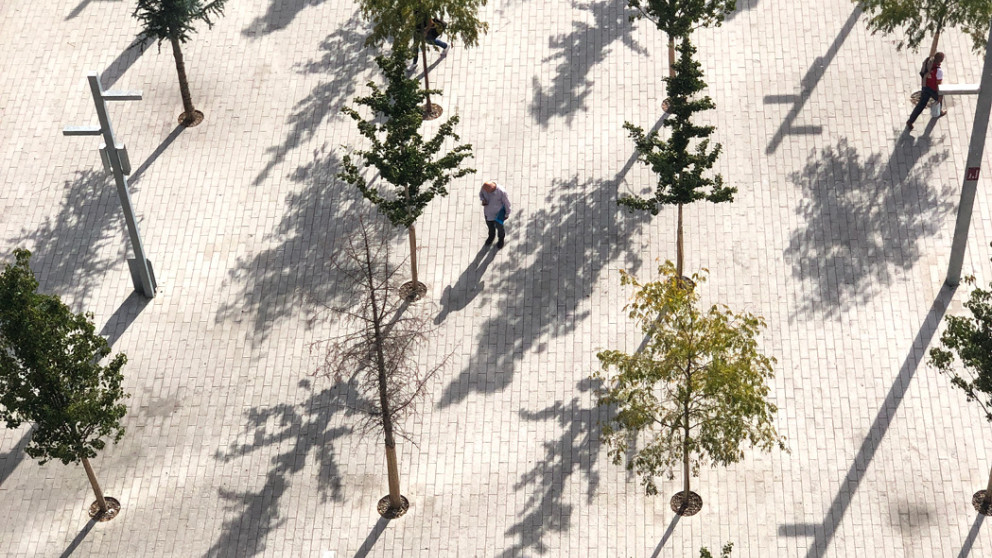Greening Cities in France and Germany Through Sustainable Land Use Policy
07.01.2025

Rising land prices, competition for space and maintenance costs for urban green spaces present local authorities with enormous challenges even as they grapple with the task of adapting cities to climate change and scaling back urban soil sealing. A RIFS study prepared in 2024 by the Franco-German Forum for the Future examines how local government bodies in France and Germany are approaching these challenges.
Urban soil sealing continues at an alarming rate
An investigation by the non-profit independent newsroom CORRECTIV documents the ongoing loss of urban soils in cities across Germany.
In Hamburg, some 15 square kilometres of land have been sealed over since 2018 – the equivalent of around 1,960 soccer fields. In Leipzig, just under 2 % of the total urban area was sealed in the same period, while Stuttgart was the only one of the three cities to record a slight decline. This trend is driven by a variety of factors. Building "on a greenfield site" is still cheaper than building on existing sites. Local authorities often lack awareness of the issues at stake or are unwilling to take action to manage sealing.
This trend stands in stark contrast to the special significance of unsealed and greened areas for sustainable urban development. Green spaces are far more than just recreational areas: they promote social cohesion by providing places where people can meet at no cost, help cities to adapt to climate change, and improve the urban microclimate. Ultimately, they also protect the health of the population.
Ambitious renaturalisation projects
Despite the many different challenges facing cities, there are positive examples of renaturalisation and unsealing. In Siegen, a former blue-collar town in Westphalia, a commercial building in the city centre was demolished in 2021 to make way for a green space – the Herrengarten. The new space complements the renaturalised riverbank of the Sieg, which was previously used as a car park. Today, the city centre has gained in amenity value and the open space is a popular meeting place.
Another flagship project can be found in Wattrelos on the Franco-Belgian border, where a site once used by an industrial chemicals company has been renaturalised. Large parts of the site have been transformed into a landscaped park, parts of which are now open to the public and actively used by local residents.
Purchasing land for the development of urban open spaces
While these projects may seem very different at first glance, they do have something in common: In both cases, local authorities made bold land purchases with the aim of developing new open spaces. In Siegen, municipal authorities exercised their right of first refusal to acquire part of the site. In Wattrelos, on the other hand, the établissement public foncier Hauts-de-France (EPF HdF) backed the city and association of municipalities in their efforts to purchase and restore the heavily contaminated site. These examples shed light on an often forgotten but decisive factor in the development of open spaces: land ownership.
Our study casts a spotlight on the importance of public ownership, shows how local authorities acquire land for the development of open spaces and highlights the challenges they face. We also take a look at support instruments such as the EPF in France or the Land Fund in Germany and consider how these could be improved.
Land policy instruments should be more sustainable
The federal states and national governments could adapt existing instruments (such as the EPF or Land Fund) with the aim of facilitating land acquisition so that municipalities can acquire open and green spaces more easily. As part of its work on sustainable urban development, the Franco-German Forum for the Future has developed a number of recommendations.
The study provides valuable background to the recommendations and an overview of the debates and instruments in France and Germany as well as concrete proposals on how land policy instruments can be made more sustainable.
